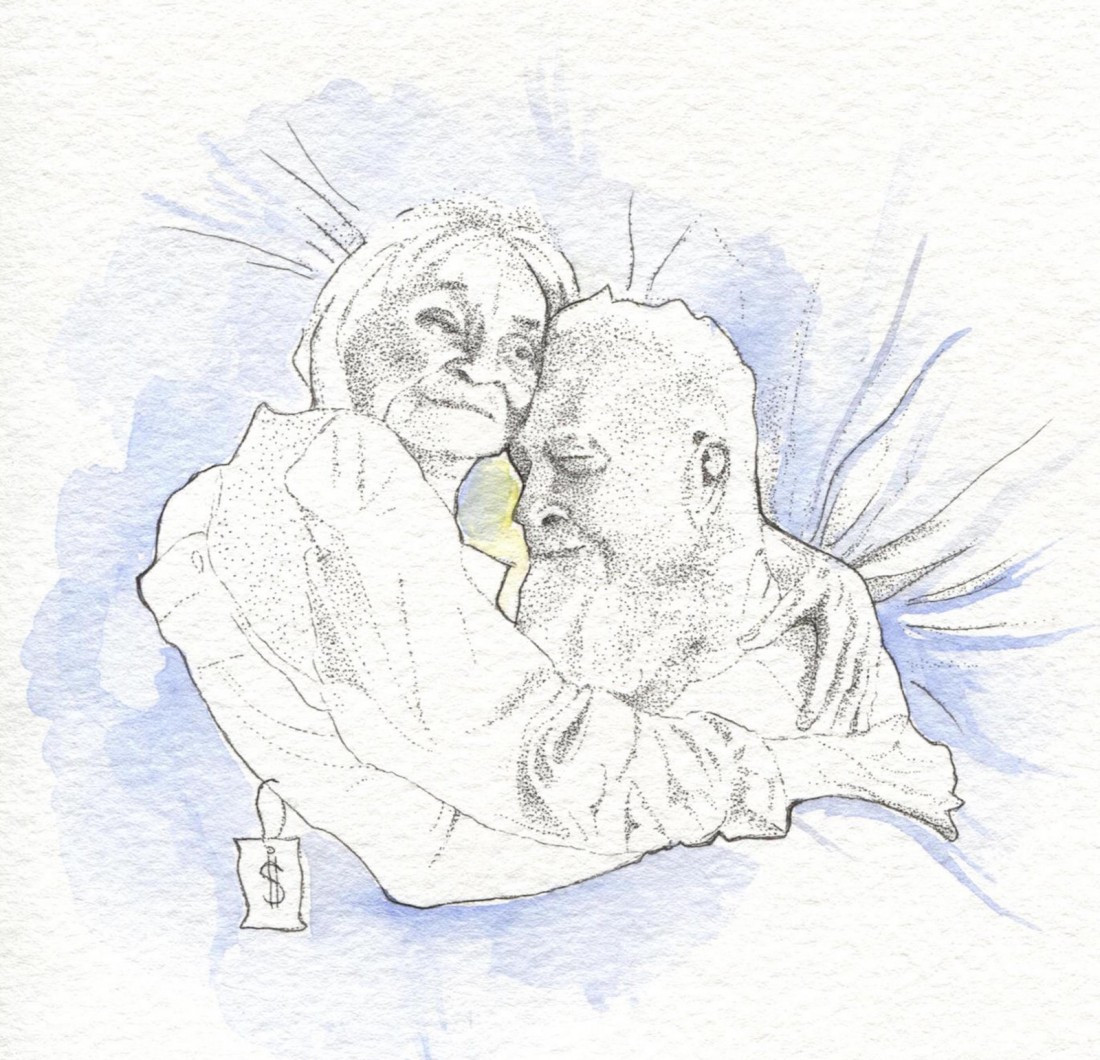Cuddle culture
Why we’re paying for touch
It’s natural to crave a snuggle, especially when stressed, but finding a cuddle buddy can be a challenge.
Thankfully there’s a business for that. The Cuddlery provides non-sexual cuddling services for people wanting to find a soothing physical closeness.
Maddy Jantz has been a cuddler with the company for about a year, and says the job brings a great sense of comfort to people.
“One thing I love about the job is seeing how much people value when I cuddle them and how much it affects them,” Jantz says.
Some of her clients haven’t been cuddled in years, and the experience is emotional for them.
“I’ve had people cry because it’s so intense for them. So that’s really great to see first hand,” Jantz says.
The prices range from $85 an hour for a completely clothed cuddle, and goes up from there for a skin-to-skin cuddle, where the cuddler wears shorts and a T-shirt for an extra $29.
Each session is videotaped for the safety of both client and cuddler and there is a client agreement that has to be signed stating the conditions of the cuddle service.
“A lot of people that I talk to about being a cuddler think that I’m naïve or silly to put myself in situations because there is an element of danger,” Jantz says. “It’s really frustrating when people assume that because I know myself and I trust my intuition.”
Jantz says there is still a stigma around the service because it’s so new but it shouldn’t be dismissed.
She says there are soothing benefits to connecting with someone via touch.
“It’s just a different kind of connection,” Jantz says. “I mean, on the internet you can talk to a friend online and it sort of satisfies one part of the need to be connected, but you can’t really easily obtain the other part of the connection, which is a physical connection.”
Dr. Beverley Fehr, a psychology professor at the University of Winnipeg specializing in interpersonal relationships, says being in physical contact with someone helps give people a sense of calm and security, particularly when under stress.
“We know that the need for touch is wired in, from intimacy onward,” Fehr says. “Research has shown that people undergoing a stressful medical procedure, for example, are better able to cope with pain if their partner is holding their hand.”
As far as paid cuddling goes, Fehr says the service would satisfy the need for touch, but wouldn’t be able to follow through with emotional support.
“In other words, you probably can’t count on your paid cuddler to be there for you when you are most in need of comfort and soothing touch,” Fehr says.
Jantz agrees that it’s hard to draw a line between business and personal lives, but in the end still enjoys providing the comfort that only another body can offer.
Published in Volume 70, Number 17 of The Uniter (January 28, 2016)







